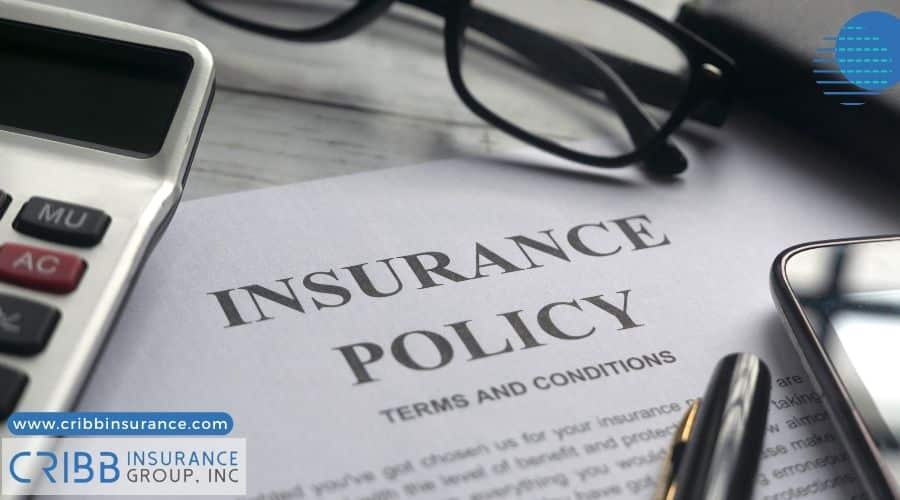Why Insurance Tips Matter
Understanding insurance can seem complicated, but it’s crucial for protecting yourself, your loved ones, and your property. This blog post will help you navigate the complexities of insurance, showing you how to save money and make the most of your coverage. Whether you’re buying insurance for the first time or looking to update your existing policies, these tips will provide valuable insights to help you make informed decisions.

Understanding Insurance Basics
What is the 80% rule in insurance? This rule is a fundamental concept in homeowners’ insurance, stating that insurance companies require you to insure at least 80% of your home’s total replacement value to receive full compensation for any claims. Knowing this can help you avoid underinsuring your home, which could lead to significant out-of-pocket expenses when you need to file a claim.
Key Insurance Terms Explained:
- Premium: The amount you pay regularly to keep your insurance active.
- Deductible: The cost you pay out of pocket before your insurance starts to cover any claims.
- Claim: A request made to your insurance company asking for payment based on your policy’s terms.
Essential Insurance Types Everyone Needs
Four types of insurance everyone should have:
- Health Insurance: Covers medical expenses and sometimes, prescriptions and other health-related costs.
- Auto Insurance: Provides financial protection against physical damage and/or bodily injury resulting from traffic collisions and against liability that could also arise from them.
- Life Insurance: Assists your dependents financially in the event of your death.
- Homeowners or Renters Insurance: Protects your property and possessions from damage or theft.
Age and Insurance: Finding Affordable Options
Understanding how age impacts your insurance costs can help you make smarter choices about coverage. Here are some insights:
- Younger Individuals: Often pay less for life insurance due to lower risk profiles but might see higher auto insurance rates due to perceived inexperience.
- Middle-aged adults: Might find a balance in premiums, especially if they maintain a good driving record and healthy lifestyle.
- Older Adults: While life insurance costs might increase with age, opportunities to decrease auto insurance premiums may arise due to less time spent driving.
Key Tips:
- Comparison Shop: Always compare offers from different insurance companies to ensure you’re getting the best rate for your age group.
- Ask for Age-Based Discounts: Many insurance providers offer discounts for mature drivers or young drivers with good academic records.
Maximizing Your Insurance Coverage
Maximizing your insurance means not just having it, but making it work for you. Here’s how you can ensure you’re getting the most out of your insurance policies:
- Review Your Policies Annually: Needs change, and so should your insurance. Regular reviews can help you adjust your coverage as your life evolves.
- Understand Your Policy: Know what’s covered and what’s not. This understanding can save you a lot of money and prevent unpleasant surprises when you need to make a claim.
Using Best Insurance Practices:
- Document Everything: Keep a record of all communications with your insurance company. This documentation can be crucial in the event of a dispute.
- Take Advantage of Benefits: Many policies offer benefits like free annual health checks or discounts on car services. Use these features to maximize the value of your policies.
Smart Insurance Shopping: How to Choose the Right Plan
Choosing the right insurance plan requires careful consideration. Here are some strategies to help you pick the best option for your needs:
- Identify Your Needs: Before you start shopping, clearly define what you need from your insurance. Consider factors like your health, the value of your assets, and your lifestyle.
- Read Reviews and Ask for Recommendations: See what others are saying about their insurers and ask friends and family for advice based on their experiences.
- Check the Financial Health of Insurers: Choose a company that is financially stable and likely to be around long enough to support a claim should you need to make one.
Reducing Insurance Costs: Effective Strategies
Reducing your insurance costs doesn’t have to mean sacrificing coverage. Here are effective ways to keep your premiums manageable:
- Increase Your Deductibles: Agreeing to pay a higher deductible can significantly lower your premiums. Just ensure you can afford the deductible in case of a claim.
- Bundle Policies: Many insurance companies offer discounts if you bundle multiple policies, such as home and auto insurance, with them.
- Maintain a Good Credit Score: Many insurers use credit scores to determine premiums. A better credit score can lead to lower costs.
Practical Tips:
- Ask for Discounts: Always inquire about available discounts, including safe driver discounts, loyalty discounts, and more.
- Review Your Coverage Annually: Ensure you’re not paying for coverage you no longer need. Adjust your policy to fit your current situation.
Making the Most of Car Insurance
Car insurance can be one of your biggest vehicle-related expenses, but with the right knowledge, you can make the most of it. Here are some car insurance tips to save money and ensure adequate coverage:
- Shop Around for the Best Rates: Don’t settle for the first quote you receive. Compare rates from several insurers to find the best deal.
- Consider Your Vehicle Choices: The type of vehicle you drive affects your insurance rates. Opt for models that are cheaper to insure.
- Drive Safely: Maintaining a clean driving record can qualify you for lower rates and good driver discounts.
Insurance Tips for Different Scenarios:
- For Young Drivers: Look into companies that offer special rates for young drivers or student discounts based on good grades.
- For High-Risk Areas: If you live in an area with high theft or accident rates, installing additional security features can help reduce your premiums.

Insurance Tips for Significant Events
Major life events can significantly impact your insurance needs and costs. Here’s how to handle insurance during some of life’s most significant transitions:
- Getting Married: Combine policies with your spouse to save on car insurance; review your life and health insurance to ensure adequate coverage for your new family.
- Buying a Home: Homeowners insurance is a must, and you might need to adjust your coverage based on the value of your home and possessions.
- Adding a Teen Driver: This can spike your auto insurance rates, but good student discounts or safe driving programs can help manage costs.
Planning for the Future:
- Retirement: As you plan for retirement, consider adjusting your life insurance. You may need less coverage if your dependents are no longer financially reliant on you.
- Reviewing Insurance for Elderly Parents: Help your elderly parents review their insurance to ensure it meets their needs without unnecessary extras.
Navigating Insurance Challenges: How to Deal with Adjusters
Dealing with insurance adjusters can be daunting, but being prepared can make the process smoother and more favorable for you. Here are some tips to effectively handle interactions with insurance adjusters:
- Be Prepared: Have all necessary documents, such as your insurance policy, a list of lost or damaged items, and any proof of value or repair estimates, readily available.
- Stay Informed: Know the details of your policy—what’s covered, what’s not, and any deductibles that apply. This knowledge will help you understand the adjuster’s decisions and prepare you for negotiation.
- Communicate Effectively: Be clear, concise, and honest in all your communications. Keeping a log of all interactions can be helpful in case of disputes.
Key Strategies:
- Don’t Accept the First Offer: If the adjuster’s initial offer is too low, don’t feel pressured to accept it. You can negotiate by presenting your documentation and reasoning.
- Understand the Role of Adjusters: Remember that adjusters are professionals who assess damage and determine payouts based on policies and evidence. They’re not there to cheat you but to resolve claims within the guidelines of your coverage.
Empowering Yourself with Knowledge
By understanding your insurance policies and the options available, you can make empowered decisions that protect your financial well-being. Regular reviews, careful selection of coverage, and strategic handling of insurance matters will ensure that you maximize the benefits while minimizing costs.
- Stay Proactive: Always be on the lookout for ways to improve your coverage or reduce your premiums. The insurance market changes, and so do your needs.
- Keep Learning: The more you know about insurance, the better equipped you are to make decisions that benefit you and your family. Use resources like this blog, consumer insurance guides, and professional insurance advice to keep your knowledge up to date.
Frequently Asked Questions
What is the difference between term and whole life insurance?
Term life insurance provides coverage for a specific period or “term,” while whole life insurance offers lifelong coverage and includes an investment component, known as the cash value.
How can I determine if my property is underinsured?
Review your policy’s coverage limits annually and compare them to the current replacement cost of your property, considering any renovations or market changes.
What should I do if my insurance claim is denied?
Review the denial letter for the reason, ensure all documentation was submitted correctly, and appeal the decision with your insurance company if you disagree.
Are there any insurance policies that cover natural disasters specifically?
Yes, policies like flood insurance or earthquake insurance are designed specifically to cover damage from these natural disasters, separate from standard homeowners insurance.
How do deductibles work in health insurance?
A deductible is the amount you pay out-of-pocket for healthcare services before your insurance starts to pay. After meeting your deductible, you usually pay a co-insurance or a co-pay for covered services.
Can I change my auto insurance policy at any time?
Yes, you can generally change or cancel your auto insurance policy at any time, but it’s wise to ensure you have another policy in place to avoid a lapse in coverage.
What factors affect the cost of auto insurance?
Key factors include your driving history, type of vehicle, amount of coverage, deductibles, and sometimes your credit score.
Stay Informed and Protect Your Finances Today!
Ready to take control of your insurance and save money? Subscribe to our newsletter for more expert tips and updates on the best insurance practices. Don’t miss out on valuable insights that can help you maximize your benefits and safeguard your financial future. Contact us today and stay ahead with the latest advice from industry experts!





